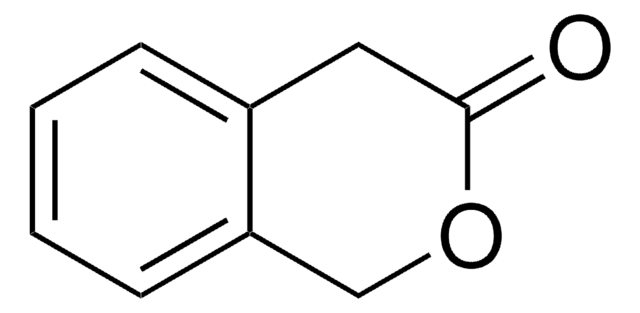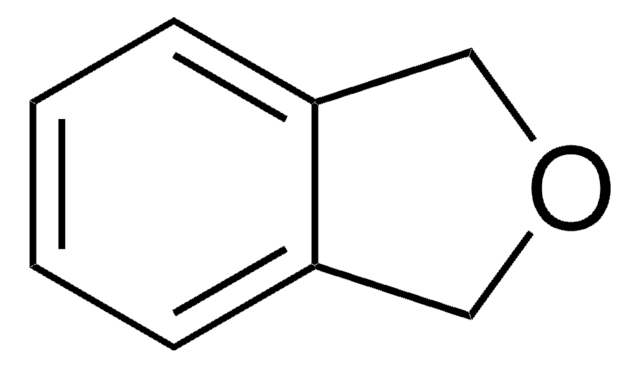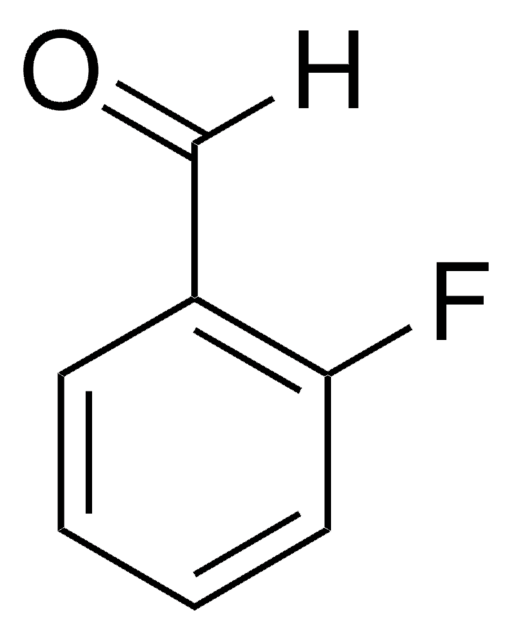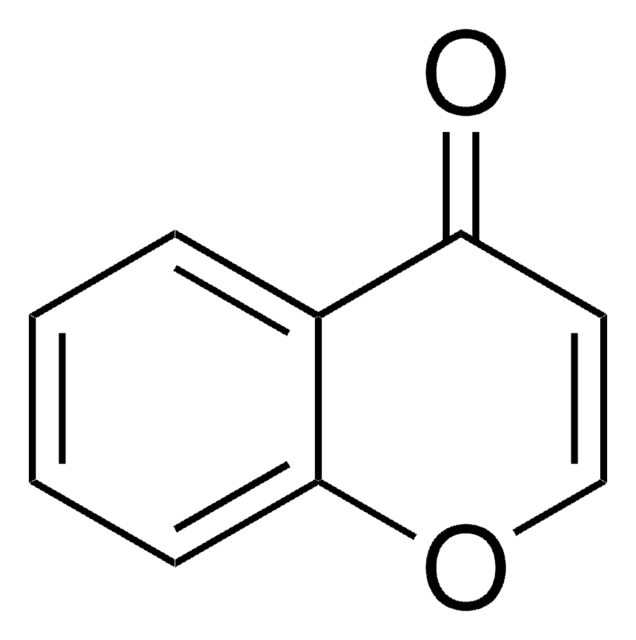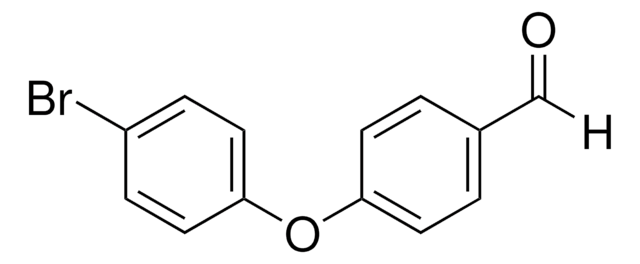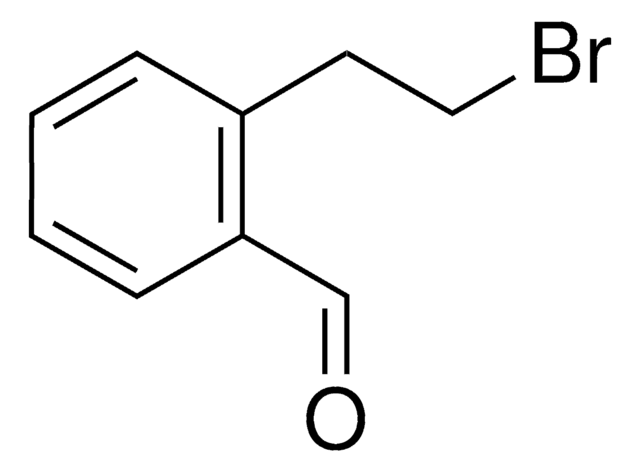All Photos(1)
About This Item
Empirical Formula (Hill Notation):
C9H10O
CAS Number:
Molecular Weight:
134.18
EC Number:
MDL number:
UNSPSC Code:
12352100
PubChem Substance ID:
NACRES:
NA.22
form:
liquid
Assay:
99%
Recommended Products
Quality Level
Assay
99%
form
liquid
refractive index
n20/D 1.545 (lit.)
density
1.067 g/mL at 25 °C (lit.)
SMILES string
C1Cc2ccccc2CO1
InChI
1S/C9H10O/c1-2-4-9-7-10-6-5-8(9)3-1/h1-4H,5-7H2
InChI key
HEBMCVBCEDMUOF-UHFFFAOYSA-N
Related Categories
Storage Class Code
10 - Combustible liquids
WGK
WGK 3
Flash Point(F)
150.8 °F - closed cup
Flash Point(C)
66 °C - closed cup
Personal Protective Equipment
dust mask type N95 (US), Eyeshields, Gloves
Choose from one of the most recent versions:
Already Own This Product?
Find documentation for the products that you have recently purchased in the Document Library.
Shah-Iram Niaz et al.
Natural product research, 33(9), 1262-1268 (2018-05-05)
Seven polyketides, including two new isochromanes, penisochromanes A and B (1 and 2), as well as five known compounds were obtained from an ascidian-derived fungus Penicillium sp. 4829. Their structures were identified by extensive spectroscopic analyses. The structures of compounds
Justin P Cole et al.
Journal of the American Chemical Society, 142(31), 13573-13581 (2020-07-15)
The Birch reduction is a powerful synthetic methodology that uses solvated electrons to convert inert arenes to 1,4-cyclohexadienes-valuable intermediates for building molecular complexity. Birch reductions traditionally employ alkali metals dissolved in ammonia to produce a solvated electron for the reduction
Samantha E Yohn et al.
Pharmacology, biochemistry, and behavior, 135, 217-226 (2015-05-30)
Mesolimbic dopamine (DA), particularly in the nucleus accumbens, is a critical component of the brain circuitry involved in behavioral activation and effort-related processes. Although much is known about the characteristics of DA D2 receptor antagonism on effort-related choice behavior, less
Our team of scientists has experience in all areas of research including Life Science, Material Science, Chemical Synthesis, Chromatography, Analytical and many others.
Contact Technical Service
